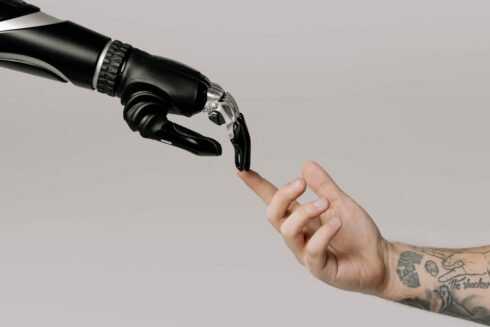
To say 2023 was a year taken up mostly by AI would be a massive understatement. Following the release of ChatGPT at the very end of 2022, generative AI blew up in 2023.
According to Reuters, ChatGPT had grown to 100 million active users by January 2023, which was just two months after it launched.
ChatGPT is a product of OpenAI, which is an AI company that also produces the GPT model that ChatGPT and many other AI technologies run on. OpenAI had quite the successful — and eventful — year.
In January, Microsoft announced a multi-year, multi-billion dollar investment in the company. Other announcements throughout the year included offering a paid version of ChatGPT, an API for ChatGPT, and the release of GPT-4.
OpenAI also teamed up with Anthropic, Google, and Microsoft to form the Frontier Model Forum in July. The organization is dedicated to safely and responsibly developing frontier AI models. The Forum defines these as “large-scale machine-learning models that exceed the capabilities currently present in the most advanced existing models, and can perform a wide variety of tasks,” Google explained in a blog post.
In early November, the company hosted the first OpenAI DevDay event, where it made several announcements, such as the ability for users to now create their own custom versions of ChatGPT for specific purposes, a preview of GPT-4 Turbo, an updated version of GPT-3.5 Turbo, the Assistants API, Whisper v3, and new multimodal capabilities across its AI models.
Then, later that month, the company was at the forefront of everyone’s interest when the board suddenly fired CEO Sam Altman, which led to a spiral of events that ultimately ended with Altman returning and the board being replaced within the week.
A number of other tech companies also announced several capabilities that incorporate AI. For instance, Microsoft integrated ChatGPT into its Bing search engine and announced Microsoft Copilot, which is an AI copilot that works across the entire Windows platform. Google also announced Bard, its response to the AI-enabled Bing, and in December it announced a new multimodal model called Gemini. And Amazon announced Amazon Bedrock, a platform for building generative AI applications.
This wasn’t limited to just the big players in tech. Nearly every company announced they were integrating AI into their products in some way, including Atlassian, Boomi, Dell, JetBrains, MongoDB, Oracle, ServiceNow, Slack, Stack Overflow, Vercel, and Zenhub.
The AI-assisted development tool GitHub Copilot (which existed before ChatGPT) was also updated to utilize the GPT-4 model. Copilot Chat was also brought into beta, enabling developers to ask questions about their code and get explanations and code suggestions. The company also announced a preview of GitHub Copilot Enterprise, which is expected to be generally available in February 2024.
Finishing out the year, there were several organizations and governments working to advance AI safely. The White House issued an Executive Order on AI in October, which “establishes new standards for AI safety and security, protects Americans’ privacy, advances equity and civil rights, stands up for consumers and workers, promotes innovation and competition, advances American leadership around the world, and more.”
At the beginning of December, Meta and IBM announced that they were forming the AI Alliance, a group of over 50 organizations “across industry, startup, academia, research and government coming together to support open innovation and open science in AI.”
Also in December, the European Union reached a provisional agreement for new AI regulation.
“The draft regulation aims to ensure that AI systems placed on the European market and used in the EU are safe and respect fundamental rights and EU values. This landmark proposal also aims to stimulate investment and innovation on AI in Europe,” the European Council wrote in a press release.






